Feminism and beauty: it’s a big topic, full of contradictions and loose ends. But it’s a subject that is rearing its head thanks to the rise of what is described as the fourth wave of feminism.
The fourth wave, defined in part by new feminism and gender equality, may still be in an emerging state, but it has already impacted the beauty industry in ways more monumental than its previous iterations ever did.
One of the key reasons for this is that women today are connected, and not in a WI kind of way. They’re connected digitally, around the world, 24/7. And, as we all know – where digital leads, conversation and influence follow.
Riding the wave
Feminism is officially cool again – for the fourth time.
The millennial feminist movement has been fronted predominantly by influential 20-something women with statements, verbal and physical, to make about the rights of women to be, do and wear whatever they want, with the same opportunities as men.
You’d be hard pressed to find a glossy aimed at this target market that hasn’t run with a feminist cover star and cover line over the past few years – think Lena Dunham for US Vogue; Chimamanda Ngozi Adichie for Stylist; and Taylor Swift for Cosmopolitan. Feminism is officially cool again – for the fourth time.
And feminist discussion today knows no boundaries. With the rise of the digital space, blogs and social media, everyone has the chance to engage with each others’ opinions through imagery, commentary, video and snapchat.
Viral conversations have revolved around Emma Watson’s moving UN address and launch of the HeForShe campaign, Alicia Keys going cold turkey on make-up and, of course, that Miley Cryus armpit selfie.
But where does the cosmetics industry come into all this? Have brands been central to and supportive of fourth wave feminists? Or on the flipside, are they guilty of cashing in on a low self-esteem generation that they have helped create?
Self-confidence crisis
Let’s start with the facts. While global feminism statistics are hard to come by, Dove’s 2016 Global Beauty and Confidence Report reveals that 70% of women and girls say they are proud to be female and embrace it.
In a separate survey commissioned by Plan International UK, nearly half of those aged 18-34 in the UK, including men, are self-declared feminists, twice as many as older generations.
Over in the US, 60% of women identify as being a feminist or strong feminist, according to a Washington Post and Kaiser Family Foundation survey.

©Dove/Instagram
What Dove has established is that being proud of your gender, arguably a lynchpin of feminism, does not necessarily translate to being self-confident.
The report revealed the countries where women feel the most and least body confident. In the bottom five positions were the US, where only 24% feel confident in their appearance, followed by Canada (22%), Australia (20%), the UK (20%) and Japan (8%).
Social media is partially to blame: 60% of women believe social pressures people to look a certain way, and 90% have stopped themselves from eating or put their health at risk in other ways in efforts to look ‘better’.
With serious ramifications for cosmetics brands, 70% of women and girls believe media and advertising set an unrealistic standard of beauty that most can’t ever achieve; and 70% also wish the media did a better job of portraying women of diverse physical attractiveness.
What these statistics show is that while consumers today might identify as feminists, or at the very least take pride in being female, many carry deep-rooted self-esteem issues and feel that advertisers feed their insecurities.
Authenticity over artistry
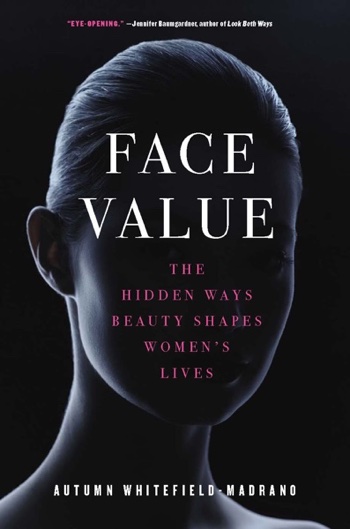
But it’s impossible to tar all cosmetics brands with the same brush. Some incorporate feminism more than others, says Autumn Whitefield-Madrano, author of Face Value: The Hidden Ways Beauty Shapes Women's Lives.
She said: “Short of knowing how each brand's products are produced – their labour practices and treatment of workers – I can't say that any brand is actually more feminist than others.
“Certainly some brands’ advertising, marketing, and general ethos incorporate feminism more than others. That doesn't necessarily mean that they're actually more feminist, but it does mean that they're more aware of the feminist consumer, or want to be seen as being pro-woman.”
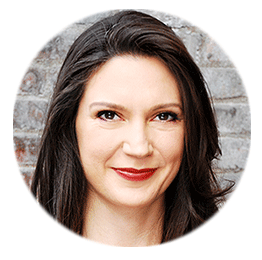
WHAT DOES BEING A FEMINIST MEAN TO YOU?
“Being a feminist isn’t just something you do in your head or something you feel. It’s how you navigate the world; it's how you approach other humans.”
- Autumn Whitefield-Madrano, author of Face Value: The Hidden Ways Beauty Shapes Women's Lives
Whitefield-Madrano singles out MAKE Cosmetics as a brand she thinks is supportive of feminist causes.
MAKE preaches a message of ‘slow beauty’ rather than keeping up with the fast-paced nature of the fashion calendar.
The New York brand promotes self-expression and says that being ‘artful’ and expressive, embracing what makes each individual feel authentic and good is what matters – not ‘artistry’.
MAKE also donates 10% of its sales to the We See Beauty Foundation, which supports women-led, worker-owned cooperative businesses across the Americas.
A case of opinion
Another more high profile brand that is associated with upholding feminist values is MAC.
Whitefield-Madrano said: “Since their beginnings they've been politically active; they were using out queer people in their campaigns decades before it became what you might call fashionable, and they continue to use spokespeople who are vaguely subversive.
“I also appreciate how they posit their products as being about play and joy, which takes on a more feminist tone than the idea that we need to fix ourselves.”
However, despite having the reputation of being supportive of people from all backgrounds, races and genders, MAC has been accused of being inappropriate and sexualising women.
In 2015, the UK’s Advertising Standards Authority (ASA) received three complaints over MAC’s Viva Glam ad featuring Miley Cyrus with her legs up and apart, and her crotch partially reflected in a mirror.
At the time, MAC responded by stating that the reflected images were “no more than what one would ordinarily see when walking along a beach with women sunbathing or by a pool”.
The watchdog did not uphold the complaints and MAC was allowed to continue running the ads.
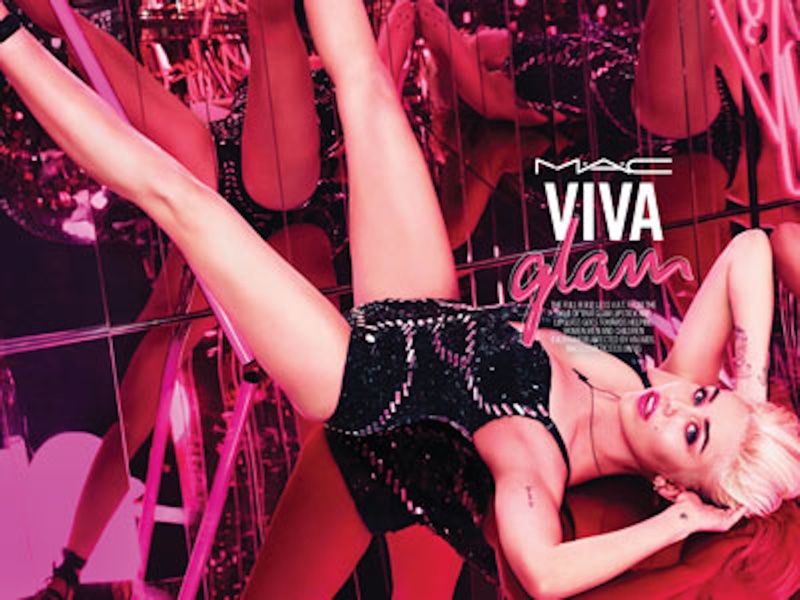
Marketplace feminism
The reality that some beauty brands might be riding on the coat tails of the trend for feminism is something that has not gone unnoticed by others in the industry: wearing the facade of feminism can be obvious – and damaging.
Teresa De Graca, CEO of Pure Swiss Boutique, said: “It’s clear that brands, not only beauty brands, capitalise on existing trends in the marketplace in order to position their products so that they can fulfil a ‘need’.
“There are companies/brands in the market that are simply only interested in their profits – at any cost. Still I believe that if a brand is using their products to push a positive message, one that can have a positive impact on society, while at the same time offering a good quality product that will make you feel good and happy about yourself, about being strong and healthy, well, for me that is a good thing.”
For beauty brands that haven’t built their company culture or marketing messages on feminist values from day one, they should consider whether a one-off feminist campaign could do more harm than good.

WHAT DOES BEING A FEMINIST MEAN TO YOU?
“It may be impossible to find an all-inclusive definition for feminism because a woman’s struggle to find a place in the world is rooted in, and reflected by, the prism of her own experience. The challenges inevitably arise when raising another human being. That’s where the tenets of mainstream feminism, based on the enlightenment values of equality, autonomy and self-determination, have always seemed inadequate and that is why men and women need to work together toward the same cause.”
-CEO Teresa De Graca, of Pure Swiss Boutique
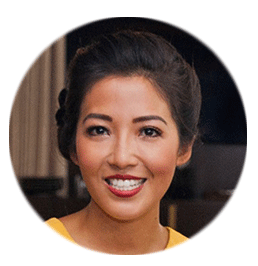
WHAT DOES BEING A FEMINIST MEAN TO YOU?
“Being a feminist comes down to equal rights and opportunities for all. It’s as simple as that!”
-Susan Ma, Founder of Tropic Skincare
Susan Ma, Founder of Tropic Skincare, believes that actions speak louder than words – or billboards.
“While I believe that shifting some opinions of the word ‘feminist’ to a more positive place still needs work, and the more accepted it is the better, the need to push products with this messaging at the forefront of a marketing campaign isn’t always necessary,” she said.
“I personally feel that actions speak louder than words, and change is more likely occur within within a company’s HQ than from a slogan on a billboard.
The need to push products with this messaging at the forefront of a marketing campaign isn’t always necessary.
“Being a female CEO/Founder is an advantage when it comes to promoting equality, but the company culture I have curated rewards hard work and passion over everything else.
“For Tropic, feminism is about making a difference to the way people feel both about themselves and within the beauty industry. The reason we don’t shout about feminism from the rooftops is because we believe it is a given, being a female-led beauty company, supported by a family of 7,500 Ambassadors, of which the majority are women.
She added: “Our language should reflect the wish to empower our customers and simply make them feel good. No pressure, no self doubt, no comparison.”
Taking action
While some could be accused of cashing in on feminism, others are showing consumers that they really do care by tying their passion for feminist issues into broader activities than just product placement.
Unilever, P&G and J&J recently took a united stand against gender stereotypes in advertising by creating a new global alliance, with other major conglomerates such as Facebook and Google, called the Unstereotype Alliance.
The group was prompted by Unilever’s 2016 company-wide commitment to advance portrayals of gender in advertising, Unstereotype. Research by Unilever revealed a stark difference between how women are portrayed in advertising versus reality: the stats showed that only 3% of ads feature women in professional roles, 2% of ads show women as intelligent and 1% as funny.
Ultimately the alliance aims to encourage cross-sector collaboration in order to achieve ‘sustained transformation’ in the advertising industry.
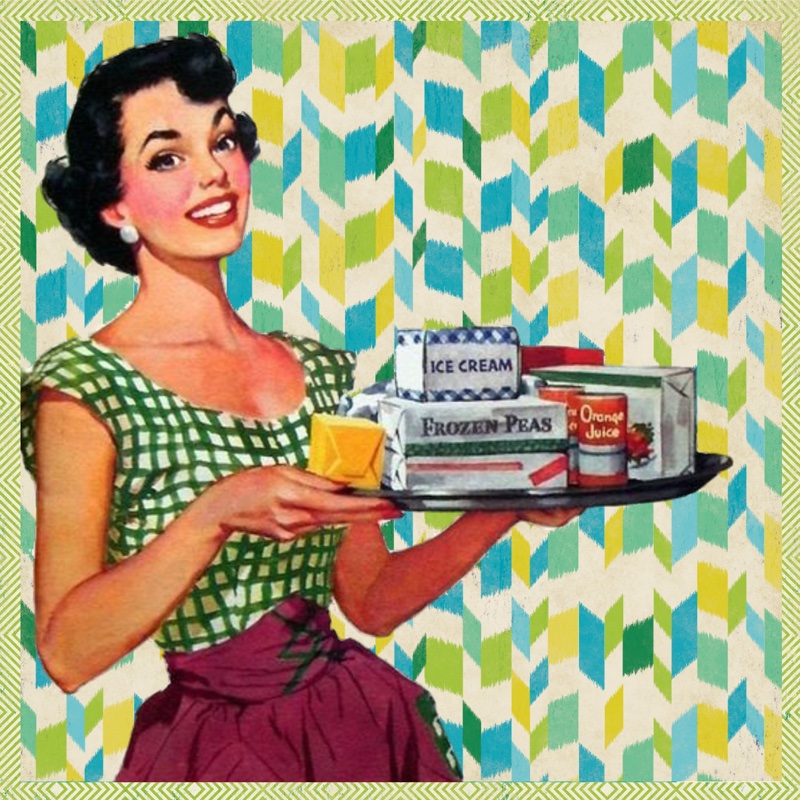
Gender stereotypes in advertising are increasingly being confronted
The ASA is also taking a renewed stand against gender stereotypes in ads. This month it published a new report, Depictions, Perceptions and Harm, in which it outlined new measures and tougher standards it will be upholding.
Interestingly the watchdog is putting greater emphasis on banishing male stereotypes too. It stated that it will no longer tolerate ads that, for example, feature a man trying and failing to undertake simple parental or household chores.
An all-ages issue
It’s not just Miley Cyrus’ generation that cosmetics companies have been attempting to more fairly represent and engage with on feminist issues.
Mature beauty is an area that has had significant interest over the past few years, as brands begin to understand the disconnect between how older women have been portrayed in advertising for years – short grey hair, cooking for their husbands – and how they actually feel.
In a 2016 survey conducted with the London College of Fashion and pro-age brand Look Fabulous Forever, 91% of respondents revealed they feel represented inaccurately, insufficiently or are ignored by advertisers, and 97% admitted that they like seeing older models or celebrities in ads.

Look Fabulous Forever promotes a positive view of ageing
Tricia Cusden, Founder of Look Fabulous Forever, said: “The beauty industry does not operate in a vacuum. It is part of a wider society that accepts ageist attitudes.
“At Look Fabulous Forever we decided that we would use only real images of real women, wrinkles and all and that we would not suggest that youthfulness is a primary goal of using the products.
“So I hope that in a small way we are taking a responsible stand against the ‘anti-ageing’ beauty industry.”
Cusden added: “I don’t think that wearing make-up and using beauty products is a feminist issue per se.
“You could make a case that women paint their faces in order to be pleasing to men, but I would argue that many do so to please themselves.”
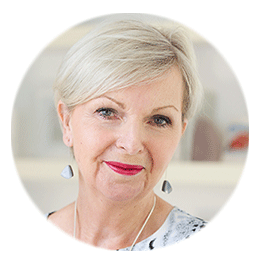
WHAT DOES BEING A FEMINIST MEAN TO YOU?
“It’s about constantly reminding people that equality is very far from being achieved and doing everything we can on a personal and professional level to promote and protect women’s rights.”
- Tricia Cusden, Founder of Look Fabulous Forever
Questioning motives
But this motive, while satisfactory at face value, cuts through to the heart of the discussion surrounding feminism and beauty: who are women really doing this for?
Whether a woman chooses to wear red lipstick, tan her skin, curl her hair or shave her legs, it seems to be completely acceptable if she is doing it for herself to boost her confidence.
But this then begs the next question, why do some women only feel confident under layers of product? Is it because they have have been influenced by advertisers or magazines to look a certain way?
Whitefield-Madrano said: “I think the whole ‘is-makeup-feminist’ thing often equates feminist and confidence, but they're not the same thing, as feminists champion confidence and confidence often leads to feminism. Kellyanne Conway seems pretty f***ing confident to me, you know? But a feminist she ain't!
“I’ll also say that I know several feminists who only came to feminism after interrogating their relationship to appearance and began to recognise that there were larger societal forces going on, so appearance can be a portal to the larger issues feminism presents.”
Part of being human
The simple solution it seems would be to completely bypass the cosmetics industry and opt out of beauty for good. But that would be to miss a fundamental human reality.
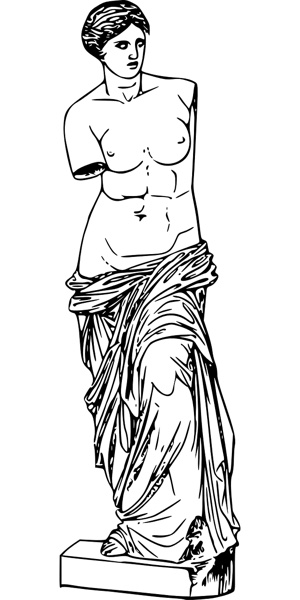
From ancient civilisations through to today, the human fascination with beauty has been a focus for philosophers, artists and scientists.
And while the ancient Greeks were not exactly rushing to their nearest salon for dip dyes and gel manicures, they were as obsessed by many of the same elements of ‘body beautiful’ that we are today.
White skin, big eyes and full lips for women; chiselled cheekbones, sharp jawlines and a well-defined six pack for men – beauty has always been inextricably linked with gender and the portrayal of femininity versus masculinity.
Whitefield-Madrano said: “Is there an ideological conflict? Yeah, probably, somewhere, in that women are culturally punished for not wearing make-up while men are culturally punished for doing so."
She added: “But is there a conflict in the lived experience of wearing make-up? Not according to the feminists I've talked to, or myself. It can be a source of joy and pleasure, and it also makes me feel less self-conscious about how I look, which means I'm then better able to direct my energy toward the world, including in feminist activism.
“And yes, that's another place where there's an ideological conflict—why should I feel self-conscious about how I look, about having ruddy skin or a blemish? Why shouldn't I just be able to present myself as-is? But we're not there yet, and I don't think that needs to be a feminist priority – self-consciousness is human.”

Responsibility to the consumer
So where does all this leave beauty brands? It’s clear that whether a brand identifies as feminist or not, it would be remiss to ignore the fact that consumers today increasingly uphold values such as equality, diversity and transparency.
But perhaps more important than all of these is consistency. A brand that doesn’t know itself, is unlikely to inspire confidence in others.
Avon has championed the feminist values of different waves since its inception in the 1880s.
Avon Andrea Slater, General Manager, Avon UK, said: “The beauty industry will always have an innate relationship with feminist values and so we do really have a strong responsibility to promote them through everything we do.
“Beauty can have such an empowering effect on people. As a company which was founded over 130 years ago, Avon has been breaking barriers and empowering women since before they even had the rights to vote by offering a path to financial independence and improved health and safety.”
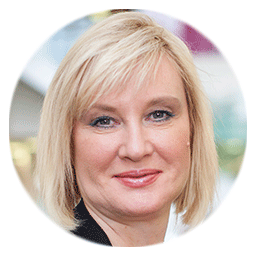
WHAT DOES BEING A FEMINIST MEAN TO YOU?
“It means equality for women, men, and all gender identifications. Currently, we are living in a time where gender still presents barriers, and feminism will exist until these barriers are broken down.”
- Andrea Slater, General Manager, Avon UK

WHAT DOES BEING A FEMINIST MEAN TO YOU?
“Equality. I’ve brought my son and daughter up as equals and I expect the world to treat them as such. Unfortunately, not only are we quite a way off this basic right, things seem to be getting worse.”
- Sam Farmer, Founder of Sam Farmer
Basic equality
Maintaining a brand’s values consistently from company culture through to marketing, is a step in the right direction, and brands should start by taking an objective look at the products they are putting on shelves, says Sam Farmer, Founder of the eponymously-named unisex brand and father of two.
“Aerosol deodorants have been phallus-shaped for years, both for men’s and women’s products, is that equality?” he asks. “Look at the shape of some of the products on the high street shelves aimed at teenage girls, the boys products are similarly-shaped except they are bigger (and more often than not cheaper) – not a massively subtle message.”
Farmer added: “This is an important, real and present issue in our industry. We have a responsibility to the consumer in the messages, images and packaging we use, just as we have a responsibility in the way we communicate the science of the product contained within. Misinformation and manipulation is damaging for all parties involved.
“Transparency and equality, that’s the message for progress in the years to come.”
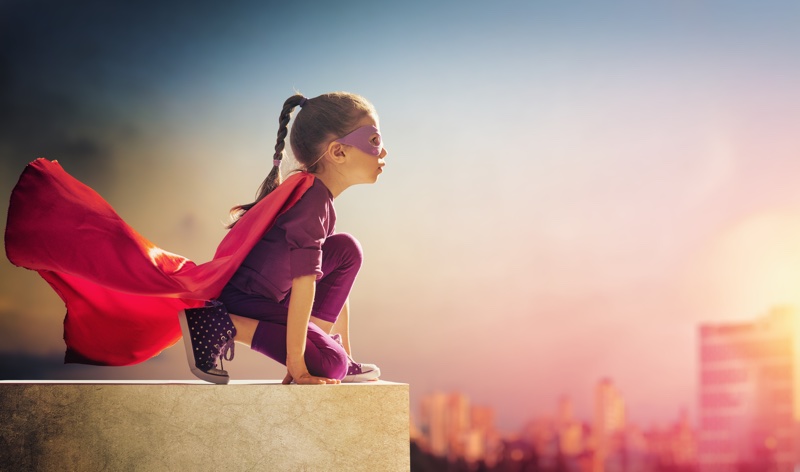
The big question
Is the beauty industry anti-feminist? Probably, in some ways and by some definitions. Is that a problem? It doesn’t have to be...
There is no easy way to measure whether the beauty industry erodes a woman’s sense of self-worth or, conversely, is the key to building it up.
But from speaking to those in the business, it’s clear that this responsibility is felt and being taken seriously by many, more so now than ever before.
Is the beauty industry anti-feminist? Probably, in some ways and by some definitions. Is that a problem? It doesn’t have to be, if brands and consumers alike start taking ownership.
It has already been discussed that brands might be better off prioritising consistent and genuine dialogue with consumers, not pretending to be something they are not or uphold values they never have, for the sake of making a fast sell.
But consumers equally need to wake up to reality, taking responsibility to educate themselves so they know what they are, and are not, comfortable buying into, and brands play an important role here too.
It is reassuring to know there are already brands and companies out there that are aware of their influence and are genuinely going the extra mile to help consumers embrace themselves for who they are and, crucially, support them in order to form their own opinions.
Because, ultimately, feminism will always mean different things to different people – and that is the true beauty of it all.
